Vauxhall Astra vs Hyundai Inster – Which one offers the better deal?
Everyday use, family trips or long-distance drives – here’s where the differences show.
Discover whether Vauxhall Astra or Hyundai Inster fits your lifestyle better.
Costs and Efficiency:
Price and efficiency are often the first things buyers look at. Here it becomes clear which model has the long-term edge – whether at the pump, the plug, or in purchase price.
Hyundai Inster has a distinct advantage in terms of price – it starts at 20500 £, while the Vauxhall Astra costs 25200 £. That’s a price difference of around 4706 £.
In terms of energy consumption, the advantage goes to the Hyundai Inster: with 14.30 kWh per 100 km, it’s minimal more efficient than the Vauxhall Astra with 15.40 kWh. That’s a difference of about 1.10 kWh.
As for range, the Vauxhall Astra performs somewhat better – achieving up to 419 km, about 49 km more than the Hyundai Inster.
Engine and Performance:
Power, torque and acceleration are the classic benchmarks for car enthusiasts – and here, some clear differences start to show.
When it comes to engine power, the Vauxhall Astra has a decisively edge – offering 225 HP compared to 115 HP. That’s roughly 110 HP more horsepower.
In acceleration from 0 to 100 km/h, the Vauxhall Astra is convincingly quicker – completing the sprint in 7.50 s, while the Hyundai Inster takes 10.60 s. That’s about 3.10 s faster.
In terms of top speed, the Vauxhall Astra performs distinct better – reaching 235 km/h, while the Hyundai Inster tops out at 150 km/h. The difference is around 85 km/h.
There’s also a difference in torque: Vauxhall Astra pulls decisively stronger with 360 Nm compared to 147 Nm. That’s about 213 Nm difference.
Space and Everyday Use:
Whether family car or daily driver – which one offers more room, flexibility and comfort?
Seats: Vauxhall Astra offers somewhat more seating capacity – 5 vs 4.
In curb weight, Vauxhall Astra is hardly perceptible lighter – 1341 kg compared to 1380 kg. The difference is around 39 kg.
In terms of boot space, the Vauxhall Astra offers clearly perceptible more room – 422 L compared to 280 L. That’s a difference of about 142 L.
In maximum load capacity, the Vauxhall Astra performs evident better – up to 1339 L, which is about 280 L more than the Hyundai Inster.
When it comes to payload, Vauxhall Astra distinct takes the win – 509 kg compared to 357 kg. That’s a difference of about 152 kg.
Who wins the race?
The Vauxhall Astra proves to be leaves the rival little chance and therefore becomes our DriveDuel Champion!
Vauxhall Astra is the better all-rounder in this comparison.
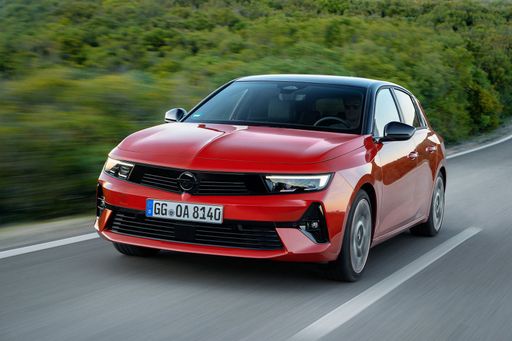
Vauxhall Astra
Vauxhall Astra
The Opel Astra exudes a sleek and modern design, making it a standout choice in the compact car segment. Its interior is thoughtfully crafted, providing both comfort and cutting-edge technology for an enhanced driving experience. The vehicle is also celebrated for its efficient performance, adeptly balancing power with fuel economy to suit urban and long-distance journeys alike.
details @ www.media.stellantis.com
@ www.media.stellantis.com
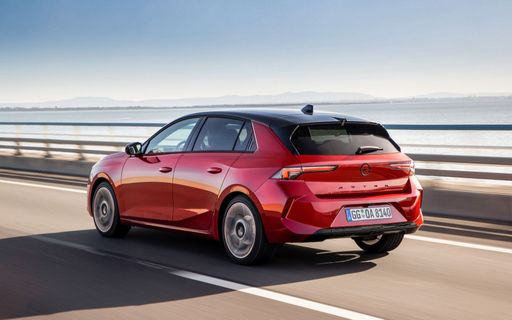 @ www.media.stellantis.com
@ www.media.stellantis.com
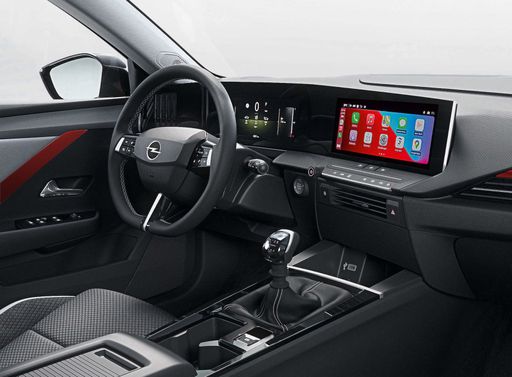 @ www.media.stellantis.com
@ www.media.stellantis.com
Hyundai Inster
The Inster has quickly captured the attention of automotive enthusiasts with its striking design and dynamic performance. This model seamlessly blends advanced technology with comfort, making it an ideal choice for both daily commutes and adventurous road trips. With its spacious interior and innovative features, the Inster promises an exhilarating driving experience that doesn’t compromise on practicality.
details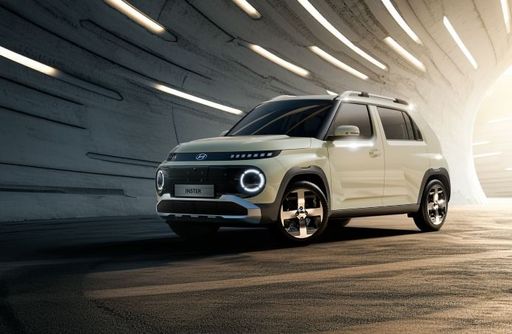 @ hyundai.news
@ hyundai.news
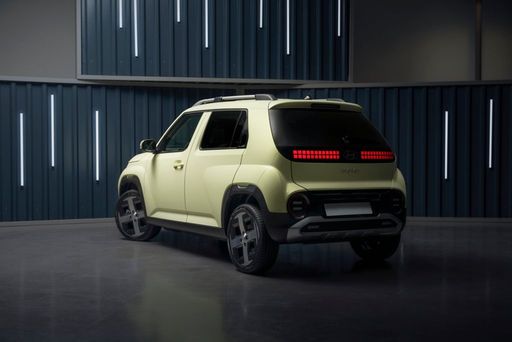 @ hyundai.news
@ hyundai.news
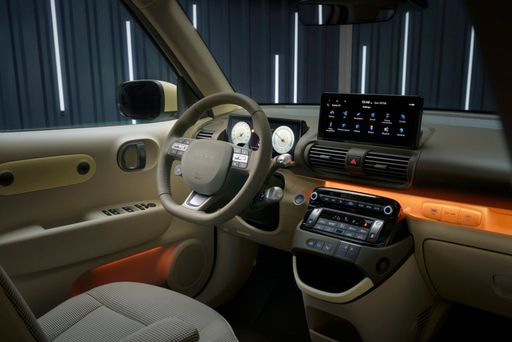 @ hyundai.news
@ hyundai.news

|

|
|
|
|
Costs and Consumption |
|
|---|---|
|
Price
25200 - 40500 £
|
Price
20500 - 25800 £
|
|
Consumption L/100km
2.2 - 6 L
|
Consumption L/100km
-
|
|
Consumption kWh/100km
15.40 kWh
|
Consumption kWh/100km
14.3 - 15.1 kWh
|
|
Electric Range
82 - 419 km
|
Electric Range
327 - 370 km
|
|
Battery Capacity
51 kWh
|
Battery Capacity
42 - 49 kWh
|
|
co2
0 - 135 g/km
|
co2
0 g/km
|
|
Fuel tank capacity
42 - 52 L
|
Fuel tank capacity
-
|
Dimensions and Body |
|
|---|---|
|
Body Type
Hatchback
|
Body Type
SUV
|
|
Seats
5
|
Seats
4
|
|
Doors
5
|
Doors
5
|
|
Curb weight
1341 - 1736 kg
|
Curb weight
1380 - 1433 kg
|
|
Trunk capacity
352 - 422 L
|
Trunk capacity
238 - 280 L
|
|
Length
4374 mm
|
Length
3825 - 3845 mm
|
|
Width
1860 mm
|
Width
1610 mm
|
|
Height
1432 - 1488 mm
|
Height
1575 - 1610 mm
|
|
Max trunk capacity
1268 - 1339 L
|
Max trunk capacity
1059 L
|
|
Payload
414 - 509 kg
|
Payload
317 - 357 kg
|
Engine and Performance |
|
|---|---|
|
Engine Type
Petrol, Diesel, Electric, Petrol MHEV, Plugin Hybrid
|
Engine Type
Electric
|
|
Transmission
Manuel, Automatic
|
Transmission
Automatic
|
|
Transmission Detail
Manual Gearbox, Automatic Gearbox, Reduction Gearbox, Dual-Clutch Automatic
|
Transmission Detail
Reduction Gearbox
|
|
Drive Type
Front-Wheel Drive
|
Drive Type
Front-Wheel Drive
|
|
Power HP
130 - 225 HP
|
Power HP
97 - 115 HP
|
|
Acceleration 0-100km/h
7.5 - 10.6 s
|
Acceleration 0-100km/h
10.6 - 11.7 s
|
|
Max Speed
170 - 235 km/h
|
Max Speed
140 - 150 km/h
|
|
Torque
230 - 360 Nm
|
Torque
147 Nm
|
|
Number of Cylinders
3 - 4
|
Number of Cylinders
-
|
|
Power kW
96 - 165 kW
|
Power kW
71 - 85 kW
|
|
Engine capacity
1199 - 1598 cm3
|
Engine capacity
-
|
General |
|
|---|---|
|
Model Year
2023 - 2025
|
Model Year
2025
|
|
CO2 Efficiency Class
D, A, C, B
|
CO2 Efficiency Class
A
|
|
Brand
Vauxhall
|
Brand
Hyundai
|
What drive types are available for the Vauxhall Astra?
Available configurations include Front-Wheel Drive.
The prices and data displayed are estimates based on German list prices and may vary by country. This information is not legally binding.
